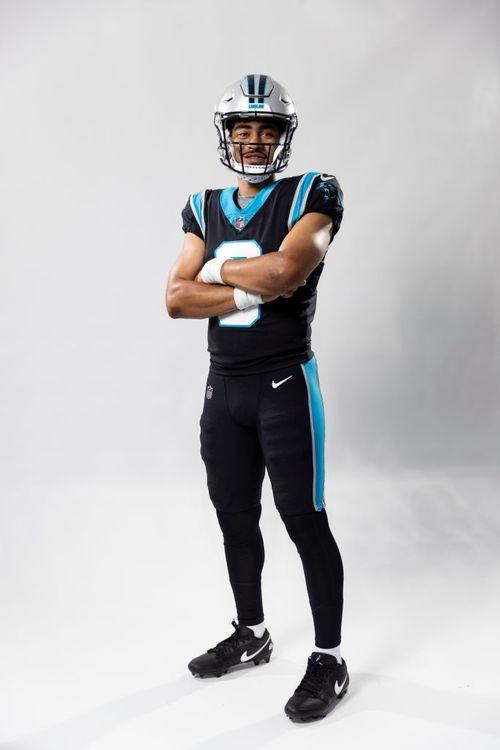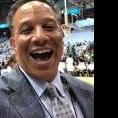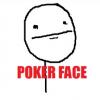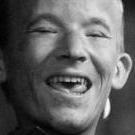-
Welcome!
Register and log in easily with Twitter or Google accounts!
Or simply create a new Huddle account.
Members receive fewer ads , access our dark theme, and the ability to join the discussion!
-
-

-
-
Topics
-
-
-
Posts
-
By therealmjl · Posted
I think Tepper made huge strides in this area last year as well. It’s obvious he has trust in the Canales/Morgan pairing - and rightfully so. -
By LinvilleGorge · Posted
Did you really just source your own Twitter account? LOL -
There are times during the prolonged, pre-draft process that you abandon your gut feelings and allow yourself to be persuaded by popular opinion. My gut was more consistent with what Morgan et al did than my conclusions. Here is why (my theory): 1. With social media, one opinion is often repeated until it seems like the majority. The more you see it, the more you feel that your gut was wrong. You second guess and conform at times. In January, if you told me TMac would be there at 8, I would have been very interested because there weren't other WRs like him and he was dominant on a bad team. I let the comments about film, questions about separation, etc. sway my opinion. I started comparing him to Kelvin Benajamin in my head (work ethic). So I took him off my board. 2. Morgan said something rather profound (parphrasing): "We did not want to be restricted by need." IMO, the biggest needs were Edge, S, WR. We assume that the biggest need is aligned with the first overall pick in most situations. Everyone was talking about Jalon Walker because Micah Parsons is a similar beast and Abdul Carter would be off the board. However, as a former coach at Salisbury High School and someone who vaguely knew Walker's father before he was born, I still could not see the fit here. I think Walker is a great person and will be a good pro, but he did not fill our needs. TMac was the best player who filled a primary need and we could not find another TMac-type player in the draft. However, there would be second round Edges that were, in my view, potentially as good NFL players. The first through early third rounds were loaded with edges. 3. Since edge was our biggest need, Morgan added 2--one in the second and one in the third. They mentioned referring to statistics to see the likelihood of a player being available at 55 as opposed to 59, guiding their trade practices, for example. I noticed the talent grades did not drop as much for edge players into early round three and the WR market dropped rapidly. Morgan mentioned that they only had 3 second round WRs on their board, which is why TMac in round 1 was smart. I also posted the following stats from the internet and it is never wrong: First-round picks in the NFL Draft have a higher success rate than those in the second or third rounds. Whilethe first round boasts a success rate of around 58%, the second round is nearly as good at 49%. However, the third round sees a significant drop, with only a 25% success rate. So let's do math. If you draft 1 edge at #8 he has (since it is early in the round) about a 60% chance of being successful. Morgan would earn 6 success tokens for his Edge need. If you draft an edge in the second, Morgan would earn 5 success tokens for his edge need. If you draft an edge in the third, Morgan earns 2.5 success tokens for his edge need. So Morgan gets the draft's WR unicorn in the first round and by using the second and third round selections, addresses the biggest need by collecting 7.5 success tokens instead of 6. Morgan has a high probability of being successful with 2 of 3 of the teams' biggest needs. He was not needs driven, however, he was market driven. Supply and demand. He was smart. Had we drafted Walker, a player who is a stud and can be most effective as an ILB with versatility, I am not sure we successfully addressed the need. Other players with first round talent either lacked college productivity or had red flags. We would HAVE to target one of the 3 WRs the Panthers had listed as second round possibilities (I am guessing Higgins and Burden III and Beck--all far inferior to TMac). Higgins and Burden III were drafted before they were within trade range and it is not surprising that happened--leaving the Panthers with a only Beck at pick 57. Putting that in perspective, Edge Scourton was taken at pick 51 and Mike Green was taken at pick 59. However, there were 5 edge players taken in the second round. There were 6 edge players taken in round 3. Value TMac was rated #4 by PFF and J. Walker was rated #25. Meanwhile Beck (WR), the only second round WR available in round 2 (I should point out that Tre Harris was rated by PFF at #66, and he was taken in the mid second) was rated 40. Had we taken an edge in round 1, it is likely we would have ended up with J Walker (#25) and in round 2 Beck (#40). Instead, we drafted TMac (#4) and Scourton (PFF #29) and Princely (PFF #50). https://www.pff.com/news/draft-2025-nfl-draft-board-big-board In terms of trade value points, the PFF scores value Morgan's first and second round vs. the probably first and second round (had we taken Walker and then the best WR available in round 2 Beck): So you see, Morgan ended up, using the PFF ranking system, doubling the value he got from the first two picks than if he had taken Walker instead of TMac and then drafted the best WR left at pick 51 or 57. In terms of what actually happened, TMac was drafted at #8 and Scourton was taken at #51--this suggests that the Panthers got great value vs. the PFF rankings. Walker was taken at #15, (10 places higher than his rankings) and Beck was taken at 58, (18 places lower than his rankings.) So how did Morgan do if you compare drafting Walker/WR vs TMac/Edge? So Morgan's value was still 24% higher than it would have been had he drafted Walker. Of course, this does not factor in trades, etc. but you get the idea.
-
-






(1).thumb.jpg.39d47488da35eba0b4aca548ded58784.jpg)

Recommended Posts
Archived
This topic is now archived and is closed to further replies.